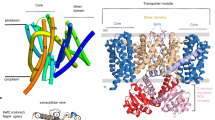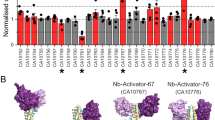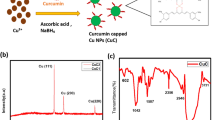Abstract
In certain conditions, internal K can stimulate active Na:K transport as well as Na:Na exchange through the ouabain-sensitive Na, K exchange pump1. When the exchange was examined during a study of the action of internal K, it emerged that the removal of K0 (the main requirement for Na:Na exchange2,3) reduced the ouabain-insensitive Na efflux. Thus, in eight experiments done Variously with outdated cells or high and low [K]i, PCMBS-treated cells, the K0-dependent Na efflux ranged from 0.18 to 0.70 µEquiv per ml cells per h. This conflicts with the well established view that the K0-dependent and ouabain-sensitive components of Na efflux are identical3,4. However, the K0-dependent, ouabain-insensitive Na efflux was found to go through the (Na + K) co-transport system, which was further found to show a dependence on chloride ions.
This is a preview of subscription content, access via your institution
Access options
Subscribe to this journal
Receive 51 print issues and online access
$199.00 per year
only $3.90 per issue
Buy this article
- Purchase on SpringerLink
- Instant access to full article PDF
Prices may be subject to local taxes which are calculated during checkout
Similar content being viewed by others
References
Garay, R. P. & Garrahan, P. J. J. Physiol., Lond. 231, 297–325 (1973).
Garrahan, P. J. & Glynn, I. M. J. Physiol., Lond. 192, 189–216 (1967).
Glynn, I. M., Lew, V. L. & Luthi, U. J. Physiol., Lond. 207, 371–391 (1970).
Glynn, I. M. J. Physiol., Lond. 136, 148–173 (1957).
Chipperfield, A. R. & Whittam, R. J. Physiol., Lond. 260, 371–385 (1976).
Wiley, J. S. & Cooper, R. A. J. clin. Invest. 53, 245–755 (1974).
Tupper, J. T. Biochim. biophys. Acta 394, 586–596 (1975).
Bakker-Grunwald, T. Biochim. biophys. Acta 513, 292–295 (1978).
Pandey, G. N. et al. J. gen. Physiol. 72, 233–247 (1978).
Funder, J. & Weith, J. O. Acta physiol. scand. 71, 168–185 (1967).
Weith, J. O. Acta physiol. scand. 79, 76–87 (1970).
Heinz, E., Geck, P., Pietrzyk, C., Burckhardt, G. & Pfeffer, B. J. supramolec. Struct. 6, 125–133 (1977).
Russell, J. M. J. gen. Physiol. 73, 801–818 (1979).
Eveloff, J., Hildmann, B., Kinne, R. & Murer, H. J. Physiol., Lond. 285, 9P–10P (1978).
Lew, V. L. & Beauge, L. in Membrane Transport in Biology Vol. 2 (eds Giebisch, G., Tosteson, D. C. & Ussing, H. H.) 81–115 (Springer, Berlin, 1979).
Whittam, R. & Wiley, J. S. J. Physiol., Lond. 199, 485–494 (1968).
Dunham, P. B., Stewart, G. W. & Ellory, J. C. Proc. natn. Acad. Sci. U.S.A. 77, 1711 (1980).
Author information
Authors and Affiliations
Rights and permissions
About this article
Cite this article
Chipperfield, A. An effect of chloride on (Na + K) co-transport in human red blood cells. Nature 286, 281–282 (1980). https://doi.org/10.1038/286281a0
Received:
Accepted:
Issue date:
DOI: https://doi.org/10.1038/286281a0
This article is cited by
-
Isolation and reconstitution of furosemide-binding proteins from Ehrlich ascites tumor cells
The Journal of Membrane Biology (1989)
-
Mechanism of uphill chloride transport of the mouse lacrimal acinar cells: Studies with Cl−-sensitive microelectrode
Pflügers Archiv - European Journal of Physiology (1988)
-
Effects of pH, potential, chloride and furosemide on passive Na+ and K+ effluxes from human red blood cells
The Journal of Membrane Biology (1988)
-
An inwardly-directed sodium-amino acid cotransporter influences steady-state cell volume in slices of rat renal papilla incubated in hyperosmotic media
Pfl�gers Archiv European Journal of Physiology (1988)
-
Effect of membrane potential on furosemide-inhibitable sodium influxes in human red blood cells
The Journal of Membrane Biology (1987)



